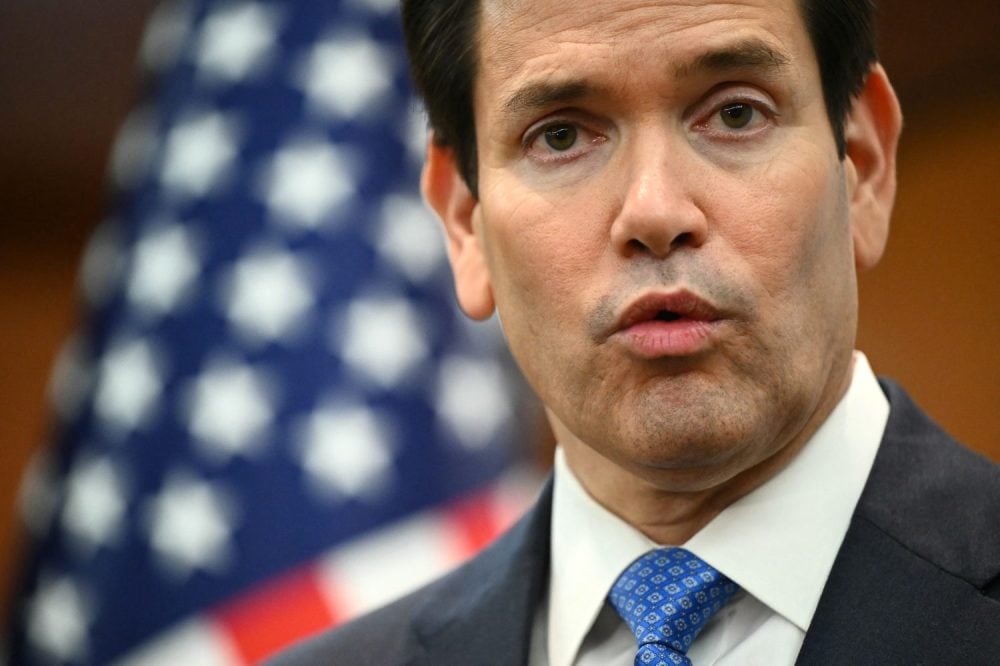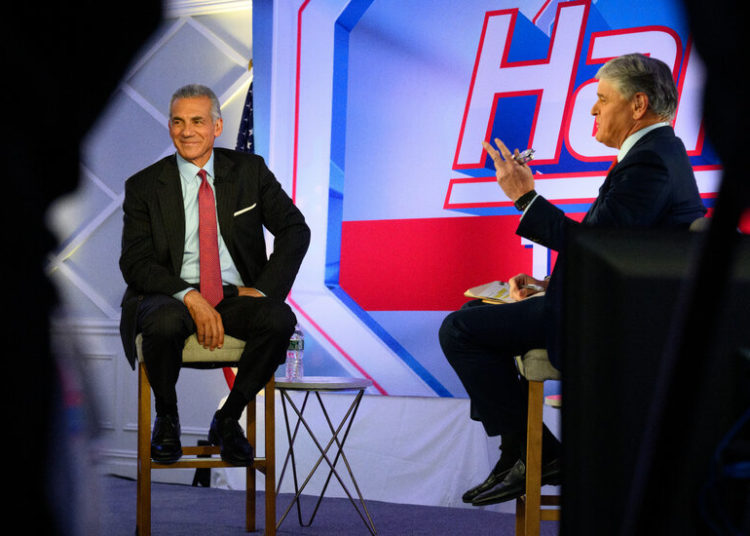Marco Rubio’s first visit to the Indo-Pacific as secretary of state last week was an entirely forgettable, regrettable affair. The original plan was for Rubio to travel to Japan and South Korea—key U.S. security allies—to shore up increasingly strained ties, not least due to President Donald Trump’s threat to impose paralyzing tariffs on Aug. 1 if the two countries do not agree to new bilateral trade agreements by then. Instead, because Rubio moonlights as acting national security advisor, he was forced to postpone these trips in order to remain at the White House for Israeli Prime Minister Benjamin Netanyahu’s visit. That left Malaysia as the only country he still made it to on what was supposed to have been a regional tour.
Rubio may as well have stayed at home. He spent just 36 hours on the ground, prompting Malaysian Prime Minister Anwar Ibrahim to joke “can I take his passport away?” to get more time with him. On the bilateral front, Rubio and Malaysian Foreign Minister Mohamad Hasan signed a memorandum of understanding for “strategic civil nuclear cooperation.” Though laudable, the two men did not issue a joint statement that could have addressed more serious areas of bilateral concern, including tariffs, China, and Malaysia’s support for Hamas since the Oct. 7, 2023, terrorist attacks on Israel. It is possible, however, that these conversations occurred and were consciously kept private, but that kind of tiptoeing would speak directly to the significant gap in U.S.-Malaysia ties.
The Trump administration also timed Rubio’s visit to coincide with the Association of Southeast Asian Nations (ASEAN) foreign ministers’ meeting, which Malaysia hosted as the bloc’s chair for 2025. At this venue, Rubio also did not represent U.S. policies well. For instance, he referred to the Indo-Pacific as “a focal point” for Washington rather than “the” focal point, raising eyebrows on whether the administration still views the Indo-Pacific as its priority theater. He tried to alleviate concerns by arguing that “distraction is impossible” and “this century and the next, the story of the next 50 years will largely be written here in this region.” His counterparts will have noticed that the Trump administration recently joined Israel to attack Iran in the Middle East and seems increasingly preoccupied with Western Hemisphere policies.
Perhaps worse, Rubio gave mixed messages to ASEAN members on trade tariffs. On the one hand, he made clear that the final outcome on tariffs resides with Trump and his trade team, effectively distancing himself from whatever negotiations may be happening behind the scenes. On the other hand, he made a promise that he has no power to keep, predicting “I would say that when all is said and done, many of the countries in Southeast Asia are going to have tariff rates that are actually better than countries in other parts of the world.” This latter comment was particularly ludicrous considering Trump’s extreme volatility; U.S. policies are now highly contingent and can change by the day. Indeed, the week before Rubio’s Malaysia visit, Trump sandbagged another ASEAN member, Vietnam, when he introduced a tariff rate out of nowhere for a new trade deal, angering and frustrating Hanoi. Malaysia, as chair of ASEAN this year, is on to Trump’s games. Ibrahim remarked at the outset of the foreign ministers’ meeting, “This is no passing storm.”
Yet another problem with Rubio’s visit to Kuala Lumpur was that he jammed it full of unrelated bilateral sidebars—some with allies, like Japan and South Korea, and others with adversaries, like China and Russia—instead of keeping the focus on Southeast Asia. As a result, the U.S. media mostly highlighted Rubio’s negotiations with Russian Foreign Minister Sergey Lavrov and Chinese Foreign Minister Wang Yi rather than any deliverables with Malaysia or ASEAN. To be sure, these were important negotiations—for example, in the case of the U.S.-China discussion, Rubio said the “odds were high” that Trump and Chinese President Xi Jinping could meet soon. As important as this is, it also became an enormous distraction from Rubio’s interactions with ASEAN—a bad outcome if you are a Southeast Asian leader or senior official desperately attempting to get and hold Washington’s attention.
Finally, a series of other unfortunately timed events further undermined Rubio’s visit. One, of course, was Trump’s decision, just before Rubio’s trip, to send Malaysia a threatening notification that if Washington and Kuala Lumpur could not agree to a new trade deal by Aug. 1, then its reciprocal tariff would rise from 24 percent to 25 percent. (Similar letters with various rates also went to seven other ASEAN members, plus Japan and South Korea.) Also, as Rubio left Washington, Trump nominated Nick Adams to be the next U.S. ambassador to Malaysia. The pick is concerning not just to Malaysian but region-wide officials, who believe Trump is prioritizing loyalty over diplomatic experience. Adams is also notable for his “alpha male” persona and misogynistic social media comments. Similarly, Trump’s pick to become the next ambassador to Singapore, another ASEAN member, proved to lack basic factual knowledge on Singapore in his recent Senate confirmation hearing. And though it remains part of the rumor mill, Rubio may have fired his ASEAN prep team at the State Department, according to a reputable source, perhaps as part of broader departmental cuts. Regardless, it would support the Southeast Asian view that Washington isn’t serious about diplomatic engagement of the region, or even diplomacy at all.
To the Trump administration’s credit, however, Rubio’s visit underscored that it does, in fact, place some value on engaging with multilateral organizations such as ASEAN. The Trump administration has also participated in meetings of the Quad (on two separate occasions), the G-7, and NATO. While in Malaysia, Rubio also praised U.S.-Japan-Philippines security cooperation—a trilateral grouping that was intensified by the Biden administration. Overall, however, the tone and tenor of Rubio’s trip, coupled with a lack of clear policy deliverables, made it far less effective than it could have been—especially in the eyes of those living in the region who want to see the United States continue to prioritize them.
The post Why Marco Rubio’s Asia Visit Was a Total Bust appeared first on Foreign Policy.




